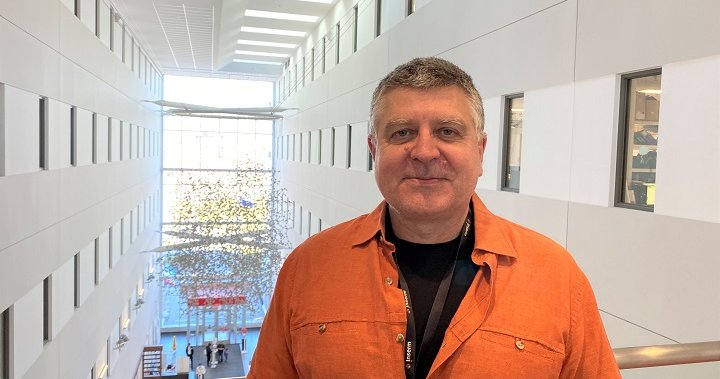
Research done in Montreal could lead to treatment for aggressive form of breast cancer
Global News
A research team led by Dr. Jean-Jacques Lebrun at McGill University in Montreal focused on what is called 'triple-negative breast cancer,' and the medical gap in its treatment.
Chances are, someone you know has been or will be affected by breast cancer.
But a recent discovery by a group of Montreal researchers into the genetic mechanisms at play in an aggressive form of the disease known as triple-negative breast cancer is fueling new hope for some of those being impacted by it.
Dr. Jean-Jacques Lebrun and his team at the Research Institute of the McGill University Health Centre not only identified which group of genes play a role in tumour progression but also uncovered what could be a promising therapy.
Lebrun, who has been doing cancer research since he was appointed to McGill some 25 years ago, said the team focused on triple-negative breast cancer or “TNBC” to address what he described as a medical gap.
“There are some breast cancers that can be cured using drugs or surgery, but the triple-negative breast cancer … there’s no efficient, targeted therapies,” he said. “The only recourse we have are usually chemotherapy and radiotherapy.”
Existing drugs and therapies target specific proteins, such as estrogen receptors, progesterone receptors or human epidermal growth factor receptors (HER2), which are normally found in breast cancer cells.
For example, those with HER2-positive breast cancer will test positive for the HER-2 protein. Lebrun said a drug called Herceptin can be used to treat those cases.
“It is an antibody that targets that receptor,” he explained, whereas “Tamoxifen — an anti-estrogen therapy — works well for women with hormone receptor-positive breast cancer.

 Run 3 Space | Play Space Running Game
Run 3 Space | Play Space Running Game
 Traffic Jam 3D | Online Racing Game
Traffic Jam 3D | Online Racing Game
 Duck Hunt | Play Old Classic Game
Duck Hunt | Play Old Classic Game